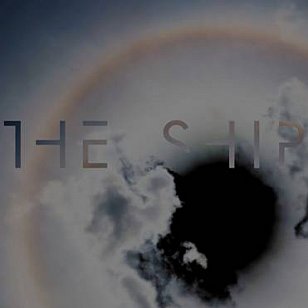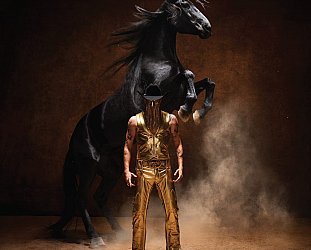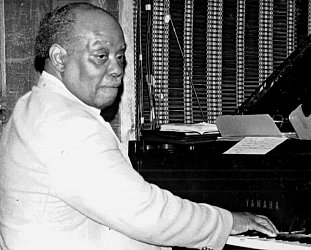Graham Reid | | 1 min read
Brian Eno: I'm Set Free

In a recent interview Brian Eno noted he is a different person these days, and in fact – like all of us – has been a series of different people. Which rather suggests he is constantly leaving past selves behind . . . and he has seemed to have done that aesthetically by moving into different territories of art, installations, painting, music for specific purposes and so on.
Yet this new album – prompted by being invited to do a sound installation for a Swedish studio and thoughts around the themes of World War One and the sinking of the Titanic – does contain aural allusions to music, ideas and production perspectives from his vast back catalogue.
Other than in the most broadly conceptual sense – the sense of submersion in the 21 minute title track – it doesn't however bear any musical resemblance to Gavin Bryars' piece The Sinking of the Titanic which Eno recorded for his Obscure label in the early Seventies, although that remains an undeniable reference point.
But the slow delay ambient qualities of that piece will also perhaps remind many of his albums with Robert Fripp (No Pussyfooting, Evening Star) although obviously Fripp's guitar textures are absent.
So in its atmospherics the title track does pull some distant threads into this new world, through the tunnel of his installation pieces like Music for Airports.
It is a slow unveiling of warm synth sounds (strings) and deploys vocoder to convey the poetic narrative over the clang of evocative, fading bells, distant voices.
The rest of the album are billed as three parts of a piece Fickle Sun, the first of which (taking that title) is an 18 minute dreamscape overlaid by a yearning vocal line which – over crashing cymbals – becomes a wordless ache (and someone is bound to say “Warsawa” which he co-wrote with Bowie for the Low album). With images of empty boats, lines like “all the boys are falling down” and strident, horn-like sounds it has a stentorian gloominess and evokes funereal martial music.
The second part – The Hour is Thin – is a three minute piece read by actor/musician Peter Serafinowicz and which sounds like a post-war meditation on the thrill, horror and ultimate futility of war.
The easy-entry highpoint however is the most simple and direct, his version of Velvet Underground's ballad I'm Set Free which sits at the end as a coda linking the themes of death and passing, but which also manages to be a thoughtful slice of slow, synth-riding alt.pop which he delivers with absolute assurance.
So an album which straddles many of his multitudes, delightful and emotionally deep, but not one to win back those who acclaimed his bent pop styles in the Seventies (Taking Tiger Mountain, Before And After Science etc), the Fripp sessions or his gorgeously ambient albums like Discreet Music and Apollo.
One for Eno enthusiasts and completists.
For more on Brian Eno at Elsewhere start here.





post a comment